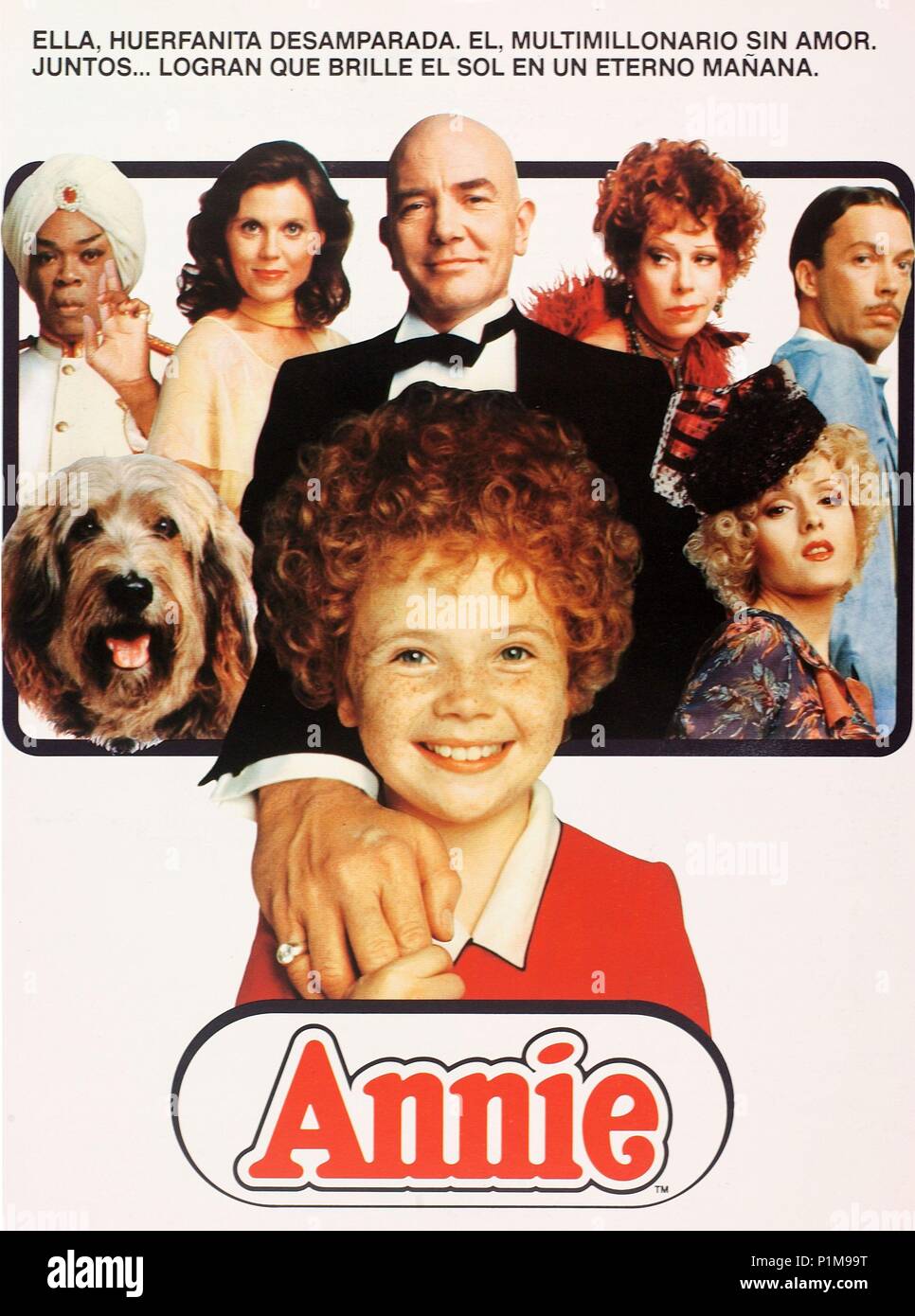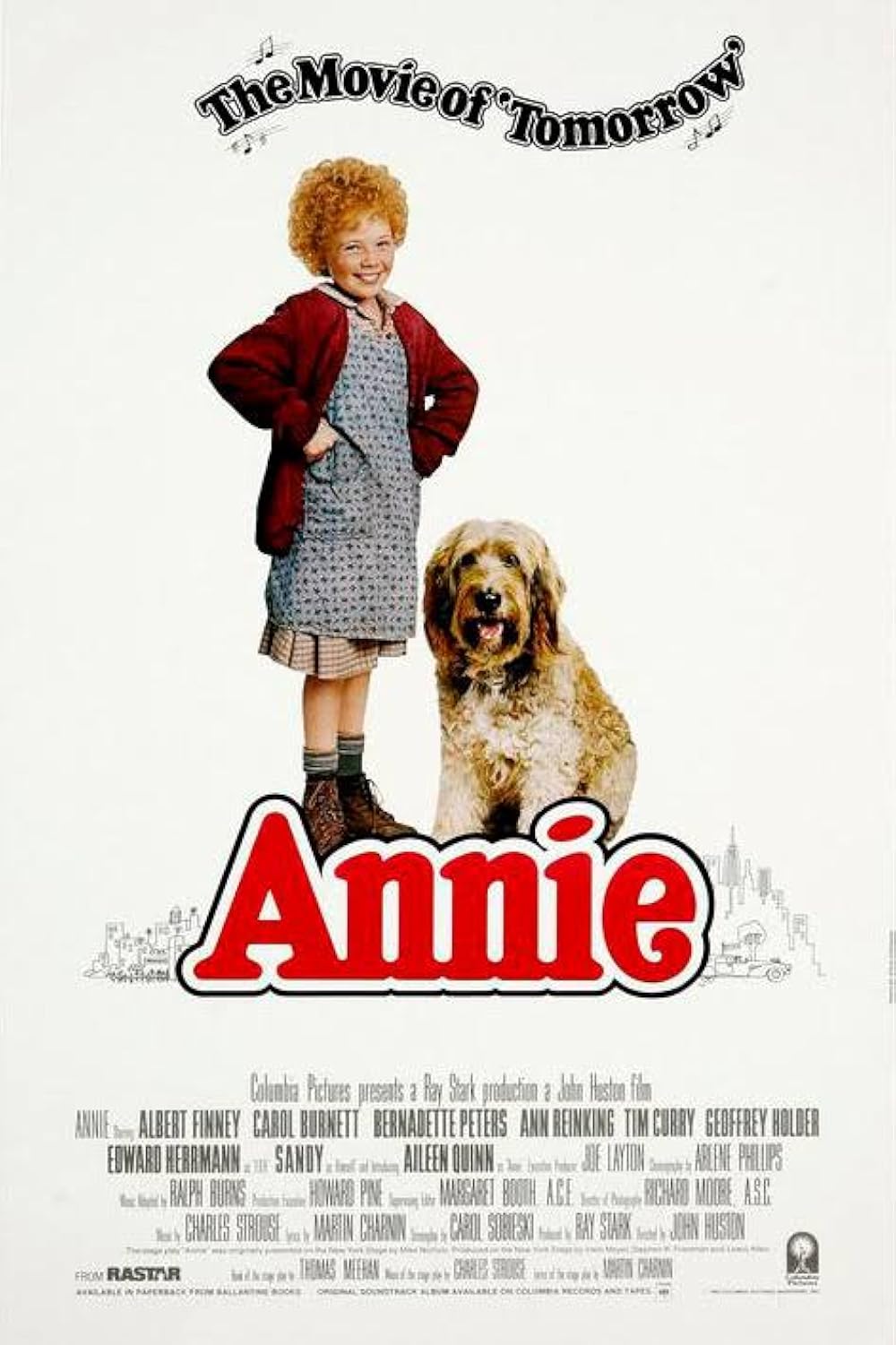Can a story of hope, set against the backdrop of economic hardship, still manage to capture the hearts of millions decades later? The enduring popularity of the 1982 film adaptation of Annie proves that the themes of resilience, optimism, and the search for family resonate across generations.
The film, a musical comedy-drama, first brought the beloved Broadway musical to the silver screen, offering a vibrant and unforgettable experience for audiences. This adaptation, directed by John Huston and penned by Carol Sobieski, itself was drawn from the 1977 Broadway musical created by Charles Strouse, Martin Charnin, and Thomas Meehan, which was inspired by Harold Gray's comic strip, Little Orphan Annie. Its story, set in the throes of the Great Depression, follows the spirited young orphan, Annie, who, despite the grim realities of her life, maintains an unwavering spirit and dreams of finding her parents.
The success of Annie lies not only in its captivating narrative but also in the talent of its cast and the memorable musical numbers that breathe life into the story. Here's a closer look at some key figures involved in the 1982 film:
| Personal Information | Details |
|---|---|
| Film Title | Annie |
| Year of Release | 1982 |
| Genre | Musical Comedy-Drama |
| Director | John Huston |
| Screenwriter | Carol Sobieski |
| Based on | 1977 Broadway musical of the same name, itself based on the Little Orphan Annie comic strip |
| Key Cast Members |
|
| Notable Aspects |
|
| Reference | Wikipedia |
The film's story unfolds in a world of stark contrasts. Annie's life is one of hardship within a New York City orphanage, overseen by the cruel Miss Hannigan, portrayed with comedic brilliance by Carol Burnett. Yet, Annie's indomitable spirit keeps her hopeful as she dreams of finding her parents. Her life takes a turn when she is chosen to spend a week at the opulent mansion of Oliver Warbucks, a wealthy and initially gruff businessman played by Albert Finney. This chance encounter becomes the catalyst for a life-altering transformation, not only for Annie but also for Warbucks and those around them.
The film masterfully captures the essence of the original stage production, preserving the heart of the narrative while translating its energy and charm for the screen. The musical numbers, penned by Charles Strouse and Martin Charnin, are instantly recognizable, enhancing the film's emotional impact and narrative flow. Songs like Tomorrow, It's the Hard Knock Life, and Maybe are not merely tunes; they are powerful vehicles that drive the story forward, giving voice to the characters' hopes, dreams, and struggles. The choreography, the production design, and the casting all work together to create a cohesive and immersive viewing experience.
Aileen Quinn, who was selected to play the lead role of Annie, embodies the character's spirited nature and resilience, effectively portraying the innocence and optimism that has endeared the character to audiences for decades. Her portrayal is balanced by Albert Finney's performance as Oliver Warbucks, demonstrating his transformation from a hardened businessman to a caring father figure. Carol Burnett's comedic timing and her portrayal of Miss Hannigan add depth and humor to the film, while Bernadette Peters and Tim Curry provide memorable performances as Lily and Rooster, respectively.
The supporting cast also includes notable actors who add depth and flair to the narrative. Ann Reinking's portrayal of Grace Farrell, Warbucks's secretary, who becomes Annie's friend and confidante, adds a layer of elegance and compassion. Geoffrey Holder, as Punjab, and Edward Herrmann, as Franklin Delano Roosevelt, play significant roles in shaping the story and highlighting the wider themes of the film, such as the human connections that can flourish during a difficult time.
The film’s production design offers a vivid depiction of the era, with its portrayal of the Great Depression. The contrast between the poverty of the orphanage and the opulence of Warbucks’s mansion serves to underscore the film's central themes of hope, social mobility, and the importance of family. The filmmakers successfully bring the visual landscape of New York City during the 1930s to life, creating a believable environment within which the musical numbers and dramatic events unfold.
The film’s adaptation for the screen also expands upon the musical, introducing new elements and perspectives to enrich the narrative. The adaptation does not simply replicate the stage production; it re-imagines it. The screenplay by Carol Sobieski takes the core narrative of the stage musical and integrates it with a cinematic understanding of pacing, perspective, and visual storytelling. This ensures that the movie maintains its original appeal while embracing the possibilities that the medium of film has to offer.
The film’s enduring appeal lies not only in its charming story and catchy music but also in its deeper messages about perseverance, hope, and the importance of human connections. The film explores themes of overcoming adversity, as Annie persistently clings to her dreams in the face of harsh circumstances. The story emphasizes the power of love, friendship, and family, demonstrating how these relationships can help individuals overcome their difficulties.
The film’s success has also inspired a lasting legacy. It has introduced generations to the magic of musical theater, influencing pop culture and shaping audiences' appreciation for storytelling. Annie has been adapted many times, including stage productions, television movies, and a more recent film adaptation, demonstrating the continuing relevance of the original story. The movie remains a classic, regularly watched during holiday seasons, and it's a significant part of the popular cultural landscape.
The 1982 film stands out as a memorable version of the story because of its combination of talent, production value, and faithfulness to the heart of the original story. It has become a timeless classic, loved by fans of musicals and families around the world. The film’s portrayal of the challenges of the Great Depression and the triumph of the human spirit will continue to resonate with audiences for years to come.



